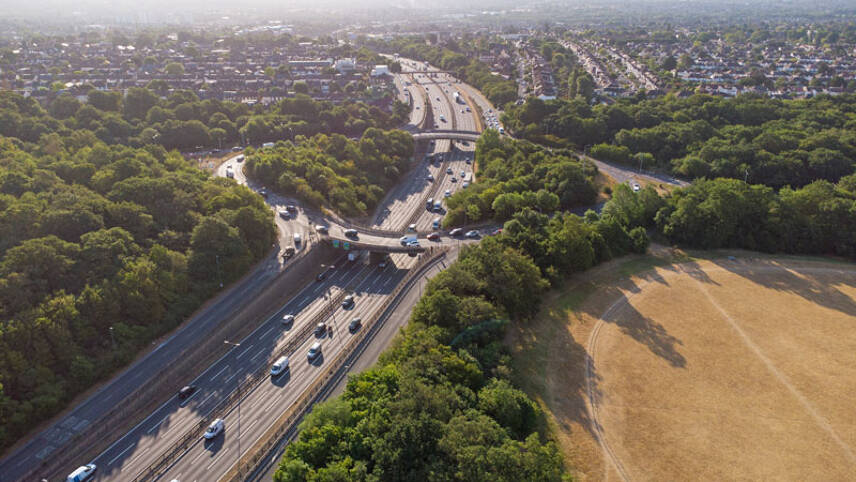Register for free and continue reading
Join our growing army of changemakers and get unlimited access to our premium content

The call to action is the conclusion of a new report on whether the UK’s current strategic road investment plans are well-designed, published this week by the Transport Committee in the House of Commons.
Under the UK Government’s current plans, the Road Investment Strategy (RIS2), £27.4bn has been set aside for 50 projects across England. Several of these projects involve either expanding existing roads or creating new ones.
Climate groups have long called for a reform of plans over RIS2. The Plans landed the Government in court in 2021 after the Transport Action Network accused the Department for Transport of not fully assessing the environmental impact of the majority of the schemes. Transport Action Network did not win the case, but the debate has rumbled on.
The new report urges Ministers to “reconsider” parts of RIS2 to ensure that the plans deliver value for money and do not undermine the delivery of the UK’s climate targets. Transport is notably the UK’s highest-emitting sector, having overtaken power generation in 2016.
MPs and industry experts quoted in the report note that Highways England does have a net-zero strategy – but concludes that plans to ensure that traffic on the expanded road network is not high-carbon are too weak.
“There is a risk that uptake of cleaner vehicles will not be fast enough to mitigate” the impact of potential increases in car use, the report states.
This report was prepared before Prime Minister Rishi Sunak was reported to be wavering on keeping the UK’s 2030 ban on new petrol and diesel cars and vans in place. Levelling Up Secretary Michael Gove has stated that the ban will be kept in place as it sends a clear signal to automotive industry players on the way forward.
In addition to keeping the ban in place, the industry is advocating for clearer measures to build a skilled workforce for the electric vehicle (EV) value chain. There have also been calls to make EVs more affordable, with some arguing that cuts to grant funding and planned new taxes could be premature.
The report urges the DfT to publicly set out a range of future scenarios for managing demand for major roads by polluting vehicles. It draws on previous advice from the Climate Change Committee, which has stated that there will need to be a shift to more active and public transport in the net-zero transition. A like-for-like shift to cleaner vehicles, Committee members have concluded, would not be the best approach.
Repair and renewal
The report advocates for some of the funding that would have gone to additional road capacity to be allocated to the maintenance of England’s busiest existing roads. Funding could also be redirected from more “complex, costly enhancement projects”.
Government-sponsored surveys of motorway users last year revealed that 31% of car and van drivers were not satisfied with the quality of road surfaces. Improving road surfaces was cited as the top priority in this survey, conducted by Transport Focus.
This survey also revealed widespread discontent with roadwork schemes. Half of those surveyed said roadworks in their area were poorly managed.
Two-thirds of those polled said they would rather the Government invests in more efficiency maintenance, repair and renewal than in road network expansion.
Responding to the report, a DfT spokesperson said RIS2 “is transforming our road network and helping to grow the economy”. They added that the scheme was necessary to keep roads “safe, reliable and well-maintained”.
Parliament is currently on summer recess, so any proposals for changes to the scheme will not be announced until MPs return in September.


Please login or Register to leave a comment.